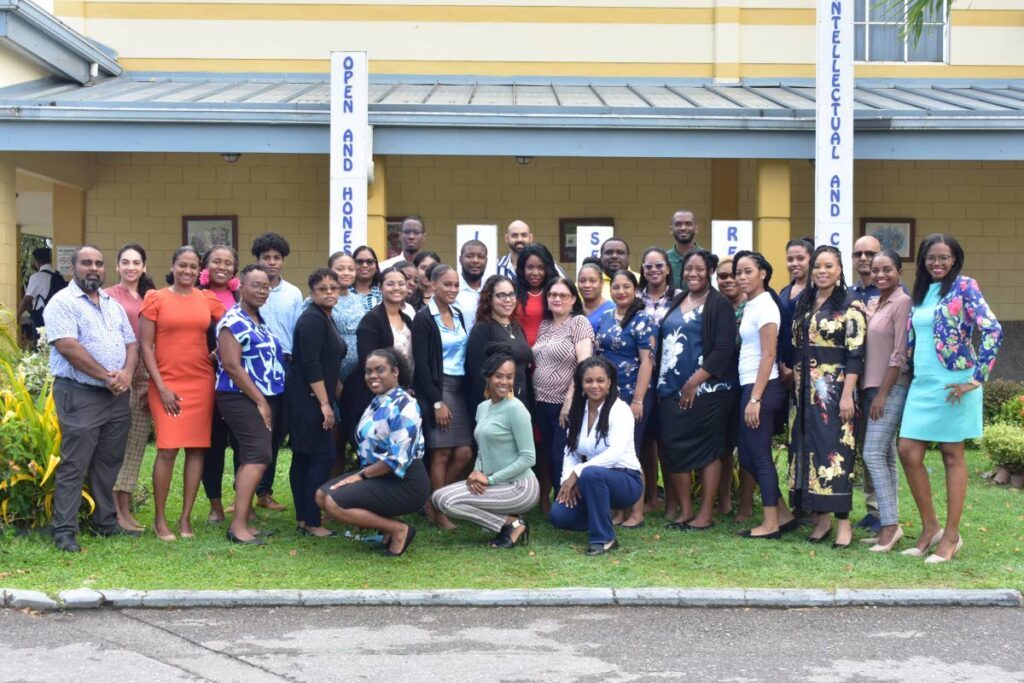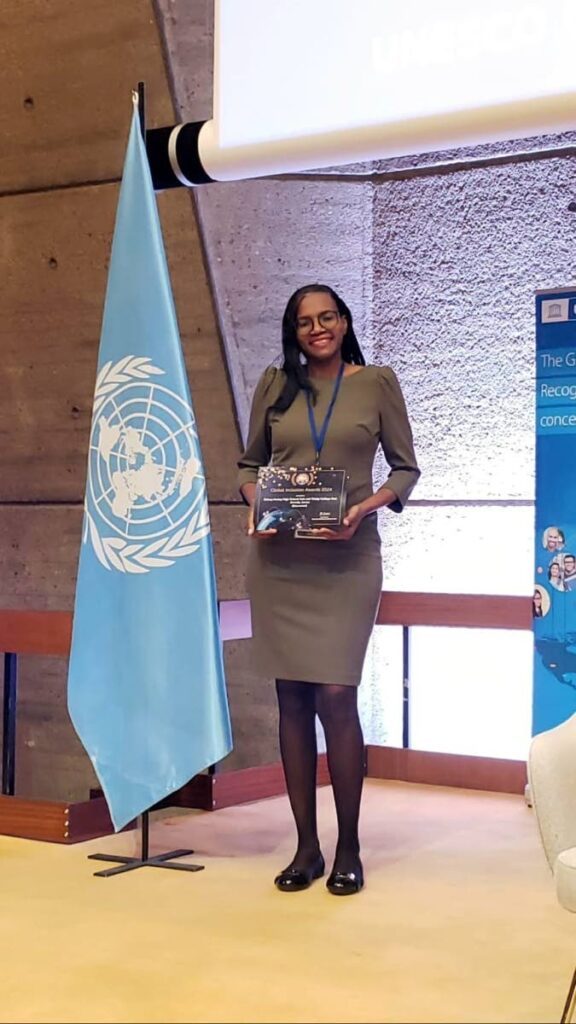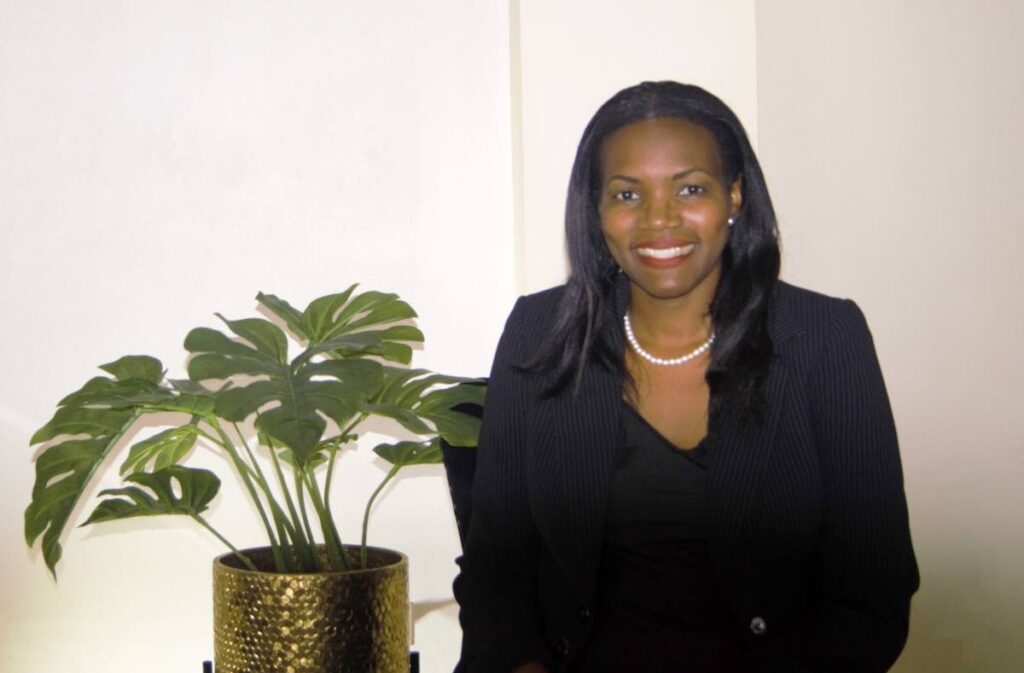BATCE gets global recognition for inclusivity in education

SHINELLY JAMES is all for inclusivity in education, which is one of the many strategies she employs at the school she leads and one that was instrumental in putting it in the global spotlight.
The head of the Bishop Anstey High School East and Trinity College East (BATCE) sixth form school applied for and was recently presented with one of the inaugural 2024 Global Inclusion Awards at the UNESCO and inclusive practitioners conference in France. BATCE was the only Caribbean school to get an award.
"Applying for the award required evidence, because it's a global award. I had to submit evidence of what we're doing at the school in terms of social emotional learning; we had to submit feedback from a diverse range of students on their experiences; and the different things we were doing to push inclusive learning...It feels good to know that what you are doing is being recognised at that level."
James, a member of the Trinidad and Tobago-based Caribbean Visionary Educators (CVE) said it was through this group that she was introduced to the Global Inclusive Initiative course – a teacher training programme that helps teachers meet the inclusivity-in-education needs in their classrooms. She felt it would be useful in helping the school improve its academic results.
CVE was established in 2019 and is made up of a team of professional educators who are committed to educational development through the creation, sharing and discourse of indigenous Caribbean-focused educational resources and services to support educators and learners globally.
"At BATCE, we have a performance management system that is tied to improvement so that we can reach our goals. So when I looked at the content of the course, I said 'this is one avenue through development I could use to improve my academic results.' The academic results of the sixth form is good, but you know there is always room for improvement.

“Last CAPE exams we reached that milestone where we got 100 per cent passes. Every student passed, and I believe it is because now we are focussing on every child."
James said the school invests heavily in professional-development training for staff, and all teachers have done the year-long inclusive initiative course, which focuses on strategies for reaching the diverse student population that teachers have to face every day.
"So in my school population I might have students who have learning disabilities, who are coming from backgrounds of poverty, having trauma in their home environment, and they are coming and bringing all this to the classroom. And I now have to reach them with an understanding that I have a great dynamic in my classroom.”
The initiative focuses on strategies the teachers can use to plan their scheme of work, their delivery, taking into consideration and assessing who they have in their classroom.
“It addresses the obstacles you are treating with and offers solutions and ways forward to address these obstacles."
James said the programme is being used in schools in countries around the world and its intention is to reach every child.
"How we are delivering the course at BATCE, is that it is tied to the performance management system which focuses on teacher growth and development. So it's tied to identifying our areas for growth, our strengths, using professional development to enhance those areas we need to develop."
The teachers then apply what they would have learnt in their classrooms, discuss it with their heads of department, do their lesson plans with the strategies they learnt, and then reflect on it.
"It's actually implementing what you learn, and most importantly reflecting what you learn, which makes it culturally sensitive because we have diverse school environments globally. So you are adapting to your environment and then you are learning from what worked and what didn't work."

She said when teachers have the mindset that every child can be successful and every child can learn, it changes the whole culture of the learning environment. And implementing the inclusivity programme, she said, requires minimal resources – a functioning device (laptop or tablet) because the course is online, a good internet connection, and effective timetabling because teachers do the course during their work hours.
"Teachers are also sharing among themselves: 'I tried this and this is the outcome.' 'These are the challenges I'm having.' So it's like a professional learning community, fostering an environment where people are sharing and learning new things.”
James sees this as a way of improving education in TT, particularly at the pre- and primary school level because of the potential for early intervention.
"You want to train and prepare your teachers from the get-go, from the time you get them, training them how to deal with the students. I think that inclusive education, in particular training teachers and principals should start at the lowest level coming straight up."
In order for the inclusive education initiative to work, she said teachers are often required to tailor their approaches to suit the needs of their students.
"Inclusive education treats with those who are vulnerable. The children being born with autism, what are we doing to treat with them in school? How do we treat with the children of migrants as it regards education?
“In some schools you will find a larger population of students who experience trauma simply because of the catchment area...We can't ignore what is happening and just expect that they will learn to read and write if we don't address their core issues.”
She said one of the contributing factors to the school getting the award was that it purposely tries to work out the best strategy and teaching approach for children with physical disabilities and learning challenges.
"For example, during the pandemic, I had the opportunity to accept a student who was non-BATCE, did well at CSEC and was legally blind. He had actually graduated in the top five percentile, with six grade ones and two grade twos, and we had to adopt a mindset that we could do this."
Before he started, meetings were held with teachers to prepare them and address their concerns; she liaised with his previous school to determine what strategies were used with him; he met with staff to figure out how he learned best and how his lessons should be delivered.
"We sent notes to him in extremely large print, we looked at assistive technology, and liaised with one of our counsellors who donated a special laptop that allowed for the magnification.
"We were intentional about assessing him, giving him a chance, changing and being willing to change how we do things.
"It was a learning experience for us as well, and we saw so much growth in him."
James said it is important that school leaders do not shut the door without trying when faced with acceptance of a child who has a disability.
"But to be fair, we have to assess if we can help because there are times when we may not be able to accommodate.
"We are fortunate at BATCE to have an elevator, so we had a student who was in a wheelchair from forms one to six…It's not just enough to have a bathroom to accommodate someone with a physical disability if they cannot otherwise enter the building. We have to assess our physical plan, prepare our teachers, give them the resources they need, because that is part of us looking at a holistic approach to inclusive education."
James said although her teachers weren't always trained to deal with students with disabilities, the school always had a culture of professional development and of giving every child a chance.
"So even though our teachers weren’t being trained as they are now, they've always had a willingness to say, 'let's try and figure it out.'"
So much so, that even before completing the inclusivity initiative course one of her teachers, Khadene Mathison, developed a social emotional learning programme that was implemented at the school.
"There are five modules in the programme: self-awareness, self-management; social awareness, where we stress heavily on bullying because we have a zero tolerance for bullying at sixth form; relationship management and positive decision-making. Those are the aspects of the programme which are taught by prefects in the form class session.
"We saw the power in peers teaching their peers, so they are actually our champions for social emotional learning…because we want to create a culture of mindfulness and acceptance of differences; It's okay that you learn differently, that you're coming from a different home background, that you're bringing a different perspective.”
After doing a holistic evaluation of the school – looking at areas such as relationships, resources, teaching, learning and then looking at the data on things such as the discipline issues that keep coming up, performance data, relationship with parents and community support – James said they realised something was missing and "we took the turn to jump on inclusive learning."
"It's a lot of work and collective effort, from the level of the board come straight down. Everyone plays their part."
Another one of the school’s initiatives that contributed to the winning of the award was the annual World of Work programme that prepares students for life after school.
"So it's not just resume writing and interview techniques. We teach students about stress management, self-management, anger management, how to carry themselves, how to figure out who they are, what they are bringing to the world every day."
"We also shared on our professional developmental approach to teaching inclusive education."
She said part of inclusive education is supporting those who need the support.
“It's equity based; we support our students who need books, provide transportation for students who need it, we have our special guidance unit which takes care of our students.”
Like the home, James said, the school is one of the most important institutions in society.
“We can make an impact with right training. When we improve literacy, it's a win, win for everyone, because aside from addressing our crime rates, we can address our country's economic standing.”

Comments
"BATCE gets global recognition for inclusivity in education"